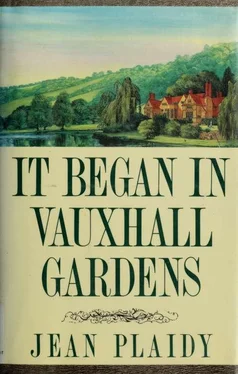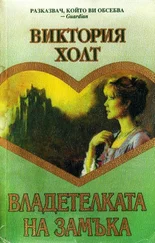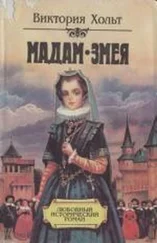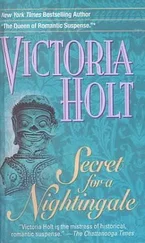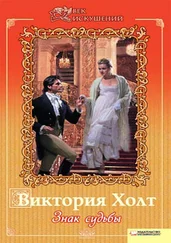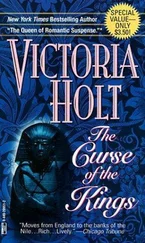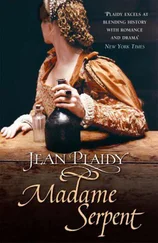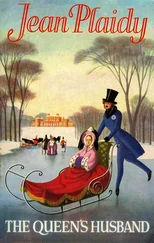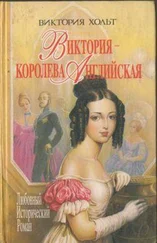Виктория Холт - It began in Vauxhall Gardens
Здесь есть возможность читать онлайн «Виктория Холт - It began in Vauxhall Gardens» весь текст электронной книги совершенно бесплатно (целиком полную версию без сокращений). В некоторых случаях можно слушать аудио, скачать через торрент в формате fb2 и присутствует краткое содержание. Жанр: Исторические любовные романы, на английском языке. Описание произведения, (предисловие) а так же отзывы посетителей доступны на портале библиотеки ЛибКат.
- Название:It began in Vauxhall Gardens
- Автор:
- Жанр:
- Год:неизвестен
- ISBN:нет данных
- Рейтинг книги:5 / 5. Голосов: 1
-
Избранное:Добавить в избранное
- Отзывы:
-
Ваша оценка:
- 100
- 1
- 2
- 3
- 4
- 5
It began in Vauxhall Gardens: краткое содержание, описание и аннотация
Предлагаем к чтению аннотацию, описание, краткое содержание или предисловие (зависит от того, что написал сам автор книги «It began in Vauxhall Gardens»). Если вы не нашли необходимую информацию о книге — напишите в комментариях, мы постараемся отыскать её.
It began in Vauxhall Gardens — читать онлайн бесплатно полную книгу (весь текст) целиком
Ниже представлен текст книги, разбитый по страницам. Система сохранения места последней прочитанной страницы, позволяет с удобством читать онлайн бесплатно книгу «It began in Vauxhall Gardens», без необходимости каждый раз заново искать на чём Вы остановились. Поставьте закладку, и сможете в любой момент перейти на страницу, на которой закончили чтение.
Интервал:
Закладка:
Melisande gave up English and let out a flow of French. "I have seen you before, Monsieur. You always sit at this table. I smiled at you as I passed yesterday, but you did not smile at me. I live at the Convent. I wish I lived at the auberge. At the Convent it is lessons all the time." She wrinkled her short nose. "And prayers ... prayers ... prayers... . They hurt my knees."
Eugenie called: "Melisande!"
"Yes, ma soeur." She was demure now; she had lowered her lids fringed with the blackest of lashes which helped to make the eyes such a startling green. Now she had composed her features and the eyes showed themselves. They were limpid with innocence. They seemed to ask, "But what have I done, ma soeur?"
"Put on your shoes at once."
"Yes, ma soeur"
"And join the others."
"It was so hot. I had a blister on my foot. See. I could no longer keep up, so ..."
"Pray join the others," said Sister Eugenie. "At once."
Melisande lingered long enough to throw a charming glance at the Englishman in which she included Armand. Armand, Madame knew well, had always been susceptible to feminine charm in old or young.
"Monsieur," said Eugenie, "I hope you will forgive this display of bad manners."
The Englishman began to explain in his laborious French. He did not think it was bad manners. The little girl had dropped her shoe and he had picked it up. She had thanked him quite charmingly. No, it was certainly not bad manners; it was the best of manners.
"We regret that Monsieur was disturbed," said Eugenie. She kept her eyes lowered; although she had not taken her final vows and did not live the sheltered life of some of her sisters, although she came out into the world, she would not look into the faces of men.
She led Melisande away, and watching, Madame saw the child marched to the head of the crocodile. Now she must walk between Eugenie and old Therese.
Madame offered a prayer to the saints for the children of the Convent, as she drew in her head. Such good people could mistake high spirits for sin so easily.
Armand, taking in every detail of the little incident, felt wise. He knew that the Englishman had been startled out of his calm. It had happened so suddenly. The child had deliberately dropped her sabot that he might pick it up and she have a close look at him and enchant him with her merry tongue. Well, why should she not ? This stately Englishman had a set of initials on some of his garments which did not tally with the name he gave; he had a habit of staring at Melisande every time she passed. Melisande was made to charm and she knew it; though she had few to try her charm on at the Convent! It was clear that Therese and Eugenie were immune; and it was certain that the Mother Superior was also. Yet such charm as that possessed by the child should not be hidden. It should flourish; it was, in Armand's opinion, worth a fortune.
Now here was the Englishman, so interested in her. That was why he was always at hand when the children passed; that was why his eyes lingered on the small figure of Melisande. Melisande was English, Armand had heard. She had been brought over to France when she was a baby and money had been paid to the nuns for her food and education. She was taught to speak English.
How did Armand know such things ? He garnered information as a jackdaw does bright stones and bits of glass; he picked a thread here, a thread there; and threads were made to be woven together, and in the weaving a pattern was formed. What should he do as he sat outside the auberge if it were not weaving the exciting patterns which made up other people's lives?
He and his wife discussed the Englishman's interest in Melisande as they lay in the big bed together, being careful to keep their voices low, for the Englishman was sleeping with only a thin wall between him and them.
"An indiscretion!" Armand had declared. "Depend upon that."
"That Englishman was never indiscreet."
"All men are indiscreet, Marie."
"That may be so. But he is so ... English."
"There are indiscretions even in the lives of Englishmen. Every country has to be populated, my little cabbage. Even the English, I believe, have found no other means of performing this necessary duty."
Then the bed would creak with Armand's laughter. Much as he loved all wit, he found his own especially amusing.
"How otherwise would you explain his interest in the little Melisande?" he had demanded.
"He might be interested in all children."
"You suggest that they are all his children!" Armand would be off again. He was so fat that one day, Madame had often warned him, his laughter would do him an injury.
"I must not die of laughing," he had whispered; "not until I have uncovered the mystery of the Englishman and little Melisande."
He was determined to do this, so the encounter between Melisande and the Englishman seemed heaven-sent. Armand had been beside himself with excitement, trying to turn his eyes from the lovely young face, trying not to be overcome by the charm of the child, that he might give all his attention to the Englishman; for through him the secret would be discovered. Young Melisande would have no notion of it.
"Ah!" he said now as he sat opposite the Englishman. "Monsieur amuses himself with our little town. Monsieur likes our everyday happenings. Is it not so ? Our bells ... our wine ... our nuns ... our poor little orphans... . And that little one! Very pretty, eh, Monsieur?"
"I find the place restful," said the Englishman. His speech delighted Armand almost as much as the mystery which surrounded him; correct as it was, it remained stubbornly English; and he spoke it almost as though it were rather a foolish joke in which he was forced to indulge.
"It is sad ... sad ... the little unwanted ones," said Armand, slyly.
The Englishman's expression betrayed nothing; but it seemed to Armand that he sat too still, that his fingers had tightened about his glass.
"Yet," went on Armand, in the slow careful speech he kept for the Englishman, "perhaps they are lucky, those little ones. A worse fate might have been theirs. The nuns are good."
The Englishman nodded. "Yes, the nuns are good."
"And," went on Armand, "it may be good for such little ones to live under a strict rule."
"For such?" asked the Englishman.
Armand leaned forward and let his mischievous eyes rest on the Englishman's face. "These children, Monsieur ... some have lost their parents; and some ... they should never have been in this world at all. The result of an indiscretion, you understand ? The love between two who could not marry."
The Englishman returned Armand's gaze without a trace of concern.
"That would be so," he said. "Yes, I daresay that would be so."
"And for such, a little strictness might be necessary."
There was silence while Armand refilled their glasses.
"Monsieur," he said artfully, "I wonder sometimes ... do the parents of these little ones ever think of them? I wonder—for I am a fanciful man—whether the parents come to our little town. We have visitors ... many visitors. Our town has its beauties. The river ... the old ruins ... and many love ruins. It is not without beauty, they tell me. But I wonder, do those parents of the little ones ever come here to see their children? How would you feel Monsieur, if you had a little son—or a little daughter—whom it had been necessary—and the good God knows how easily that can come about—whom it was necessary, Monsieur, to give to the worthy nuns to bring up ? I think, of course, of myself. Ah, I should come here. I should come here often to look at the little ones ... and my own among them."
"That might be so," said the Englishman, flicking a fly from his beautiful blue coat. He was fastidious in the extreme. A perfect aristocrat! thought Armand. And have I gone too far ?
Читать дальшеИнтервал:
Закладка:
Похожие книги на «It began in Vauxhall Gardens»
Представляем Вашему вниманию похожие книги на «It began in Vauxhall Gardens» списком для выбора. Мы отобрали схожую по названию и смыслу литературу в надежде предоставить читателям больше вариантов отыскать новые, интересные, ещё непрочитанные произведения.
Обсуждение, отзывы о книге «It began in Vauxhall Gardens» и просто собственные мнения читателей. Оставьте ваши комментарии, напишите, что Вы думаете о произведении, его смысле или главных героях. Укажите что конкретно понравилось, а что нет, и почему Вы так считаете.
